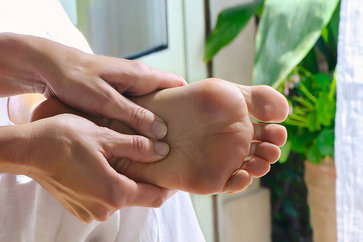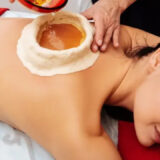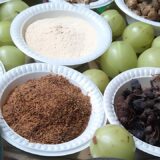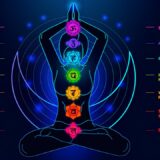Ayurvedic Medicine: Remedies for Erectile Dysfunction
What is Erectile Dysfunction?
Definition and Symptoms
Erectile Dysfunction (ED) is defined as the persistent inability to achieve or maintain an erection adequate for satisfactory sexual activity. This condition is not just about occasional failures to get an erection; it’s a chronic issue that affects sexual performance consistently over time.
Symptoms of ED may include:
- Difficulty achieving an erection
- Difficulty maintaining an erection during sexual activity
- Reduced sexual desire
- Erection that is too soft or too brief for penetration
Common Causes of ED
ED can stem from a variety of factors, often categorized into physical, psychological, and lifestyle causes:
1. Physical Causes:
- Cardiovascular Issues: Conditions like atherosclerosis (hardening of the arteries) and high blood pressure can restrict blood flow to the penis.
- Diabetes: High blood sugar levels can damage nerves and blood vessels, leading to ED.
- Hormonal Imbalances: Low levels of testosterone or other hormonal irregularities can affect erectile function.
- Neurological Disorders: Conditions like Parkinson’s disease or multiple sclerosis can impair nerve signals involved in erections.
- Medications: Certain drugs, including antidepressants and antihypertensives, can have side effects that contribute to ED.
2. Psychological Causes:
- Stress and Anxiety: High levels of stress or performance anxiety can interfere with sexual function.
- Depression: Depression can reduce sexual desire and impair erectile function.
- Relationship Issues: Emotional or relationship problems can also contribute to ED.
3. Lifestyle Causes:
- Smoking: Tobacco use can damage blood vessels, reducing blood flow to the penis.
- Excessive Alcohol Consumption: Alcohol can affect the nervous system and impair erectile function.
- Lack of Physical Activity: Sedentary lifestyle can contribute to conditions that cause ED, such as obesity and cardiovascular disease.
- Poor Diet: Diets high in saturated fats and low in essential nutrients can negatively impact overall health and erectile function.
The Impact of ED on Quality of Life
ED can have a significant impact on various aspects of life, including:
- Emotional Well-being: Men with ED often experience feelings of embarrassment, inadequacy, or low self-esteem. This can lead to increased stress, anxiety, or depression.
- Relationships: ED can strain romantic relationships, leading to communication issues and reduced intimacy. Partners may feel frustrated or concerned, which can further affect the emotional connection.
- Sexual Health: The inability to engage in satisfying sexual activity can affect one’s overall sense of sexual health and satisfaction.
- General Quality of Life: The stress and emotional burden of dealing with ED can influence other areas of life, including work and social interactions.
Addressing ED often requires a multifaceted approach, incorporating medical, psychological, and lifestyle considerations to improve overall well-being and restore quality of life.
Ayurvedic Formulations for Erectile Dysfunction
Ayurveda offers several specialized formulations designed to support sexual health and address erectile dysfunction (ED). Two notable examples are Chyawanprash and Swarna Bhasma.
1. Chyawanprash
Ingredients and Benefits: Chyawanprash is a traditional Ayurvedic formulation known for its rejuvenating and restorative properties. It is made from a blend of herbs and spices, with its key ingredients typically including:
- Amla (Emblica officinalis): Rich in vitamin C and antioxidants, amla supports immune function and overall vitality.
- Ashwagandha (Withania somnifera): An adaptogen that helps manage stress and boost energy.
- Shatavari (Asparagus racemosus): Balances hormones and enhances reproductive health.
- Gokshura (Tribulus terrestris): Supports sexual function and libido.
- Cardamom, cinnamon, and honey: Enhance the formulation’s taste and add additional health benefits.
Benefits:
- Boosts Vitality: Enhances overall energy levels and stamina.
- Supports Immune Health: Provides immune-boosting benefits.
- Balances Hormones: May help in balancing hormones and improving sexual health.
- Reduces Stress: Helps manage stress and anxiety, which can contribute to ED.
How to Incorporate into Your Routine:
- Dosage: Typically, 1-2 teaspoons of Chyawanprash can be taken once or twice daily, usually in the morning.
- Method: It can be consumed directly or mixed with warm milk or water.
- Consistency: Regular use over several weeks to months is recommended to experience its full benefits.
2. Swarna Bhasma
Historical Usage and Effects: Swarna Bhasma is an ancient Ayurvedic preparation made from gold that has been used for centuries for its rejuvenating properties. It is considered a potent Rasayana (rejuvenating) remedy, particularly in classical Ayurvedic texts. Swarna Bhasma is believed to have the following effects:
- Enhances Vitality: Supports overall health and vitality.
- Improves Cognitive Function: Traditionally used to enhance mental clarity and cognitive function.
- Supports Sexual Health: May improve sexual function and vitality.
Safety Considerations:
- Purity and Preparation: Swarna Bhasma must be prepared according to strict Ayurvedic protocols to ensure its safety and effectiveness. The gold is processed in a manner that removes impurities and makes it suitable for internal use.
- Dosage: The dosage is usually very small, often measured in micrograms. It’s crucial to follow the specific dosage recommendations provided by a qualified Ayurvedic practitioner.
- Consultation: Due to its potency and the need for precise dosage, it’s essential to consult with a knowledgeable Ayurvedic practitioner or healthcare provider before using Swarna Bhasma. They can provide guidance on the appropriate use and monitor for any potential side effects.
- Not Recommended for Everyone: Swarna Bhasma may not be suitable for all individuals, particularly those with certain health conditions or those taking specific medications.
Incorporating Ayurvedic formulations like Chyawanprash and Swarna Bhasma into your routine can offer holistic support for managing erectile dysfunction and enhancing overall vitality. Always ensure to use these formulations under the guidance of a qualified practitioner to maximize their benefits and ensure safety.
FAQs
1. What are the best Ayurvedic herbs for erectile dysfunction?
The best Ayurvedic herbs for erectile dysfunction include Ashwagandha, Shatavari, Gokshura, Safed Musli, and Kaunch Beej. Each herb supports sexual health in different ways, from boosting stamina and libido to improving hormonal balance.
2. How long does it take to see results from Ayurvedic treatments?
The time frame for seeing results from Ayurvedic treatments can vary. Many individuals start noticing improvements within a few weeks to a few months, depending on factors such as the severity of the condition and consistency of treatment.
3. Can Ayurveda cure erectile dysfunction completely?
Ayurveda focuses on balancing the body’s energies and addressing root causes, which can significantly help manage erectile dysfunction. While it may improve symptoms and overall sexual health, results can vary, and it may not provide a complete cure for everyone.
4. Are there any side effects of using Ayurvedic herbs for erectile dysfunction?
Ayurvedic herbs are generally safe, but some individuals may experience side effects such as digestive discomfort or allergic reactions. It is important to consult with an Ayurvedic practitioner to ensure proper usage and to address any potential side effects.
5. How should one choose between different Ayurvedic remedies?
Choosing the right Ayurvedic remedy involves considering your specific symptoms and health conditions. An Ayurvedic practitioner can provide personalized recommendations based on your individual needs and health status to help you select the most effective treatment.

 ED can result from a range of factors including age, medical conditions (such as diabetes or heart disease), lifestyle choices (like smoking or excessive alcohol consumption), and psychological issues (such as stress, anxiety, or depression).
ED can result from a range of factors including age, medical conditions (such as diabetes or heart disease), lifestyle choices (like smoking or excessive alcohol consumption), and psychological issues (such as stress, anxiety, or depression).
























